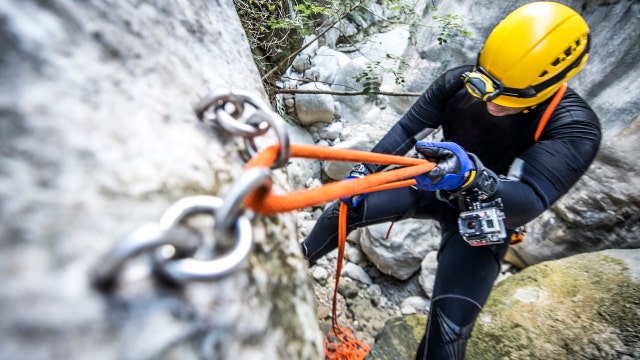Risk can boost health benefits
Everyone knows that making healthy choices can lead to a healthier life, but what about riskier choices? Dr. Manny sits down with Kayt Sukel, author of “The Art of Risk: The New Science of Courage, Caution and Chance,” to find out why some of your greatest health successes may come from risk
What if I told you that you could be happier, healthier, and more successful—just by taking a few more risks in life?
You might think I’m crazy. After all, we tend to discuss risk in fairly negative extremes. It’s the thing that is likely to result in bankruptcy, embarrassment, or even severe injury or death. Common wisdom says it’s generally best avoided.
But the truth is risk is not the bad guy it’s often made out to be. In fact, it’s an integral part of learning and growth. Risk-taking, simply defined, is just making a decision where there is an uncertain outcome. Which means you’re taking a risk when you are placing your bet on that craps roll or just deciding whether or not to have that third cup of coffee in the morning.
Learning to deal with that kind of uncertainty day-to-day is an important skill. We understand that with our kids. That’s why so many activists and educators are encouraging parents to allow their kids to go outside and take a few more risks. It’s because we’ve learned that taking chances in school and play offers incredible opportunities for children to learn how to problem solve, to regulate stress and emotion, to take initiative, to improve their physical skills, to work better with others, and, eventually, to grow into the thoughtful, capable adults they need to become.
But risk’s benefits aren’t just limited to kids. In fact, as I learned while researching “The Art of Risk: The New Science of Courage, Caution, and Chance,” seasoned risk-taking offers those very same opportunities to adults by helping individuals gain the priceless experience they need to make smarter, better decisions. And within these risks are the very kind of opportunities that can, ultimately, make us happier, healthier, and more successful in reaching our long-term goals, whatever they may be.
Now am I saying that you need to sign up for skydiving lessons or quit your job to backpack through Myanmar? Of course not! Large risks are not required—and foolhardy, impulsive behaviors are the kinds of risks that tend to work against you in the long run. But since risk is part and parcel of every single decision you make every single day, even small risks can offer big benefits to your health and well-being.
So go out and play more often. Challenge that guy with a wicked serve to a tennis match. Be open to new exercise classes in the hopes of finding one you really love (and will stick with on a regular basis). Learn to speak Italian—or to dance the tango. Try some new restaurants and cuisines in order to find ways to add healthier options to your weekly menu. Take a few risks and see where it might take you. It will not only confer some amazing experiences (and a good bit of fun)—but will also help you learn to better manage your stress, make healthier choices, and, ultimately, make smarter decisions as you make your way through life.
Kayt Sukel is the author of “The Art of Risk: The New Science of Courage, Caution, and Chance,” (Simon & Schuster, 2013). She is based in Houston, Texas, and frequently overshares on Twitter as @kaytsukel. Learn more at http://kaytsukel.com.









































